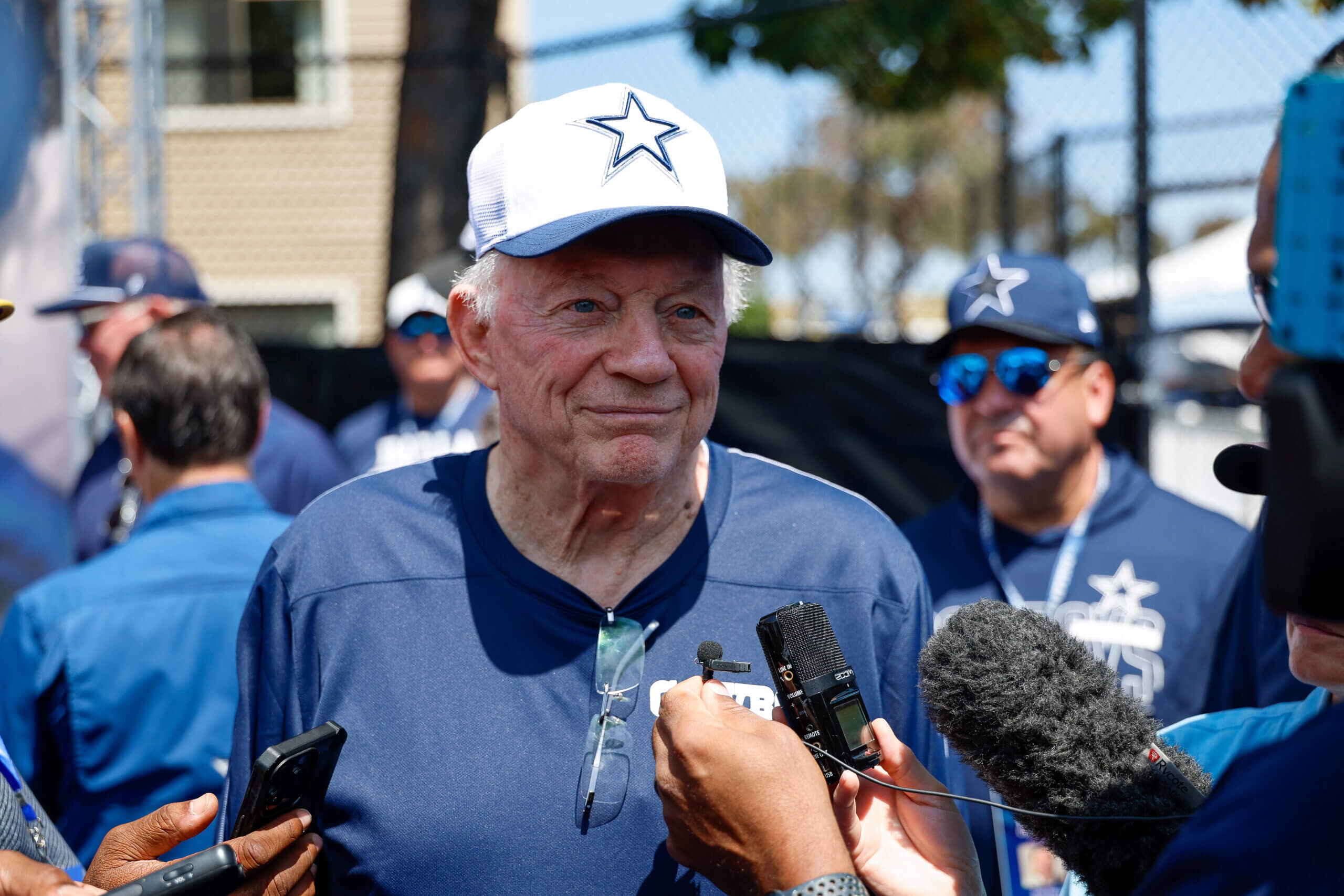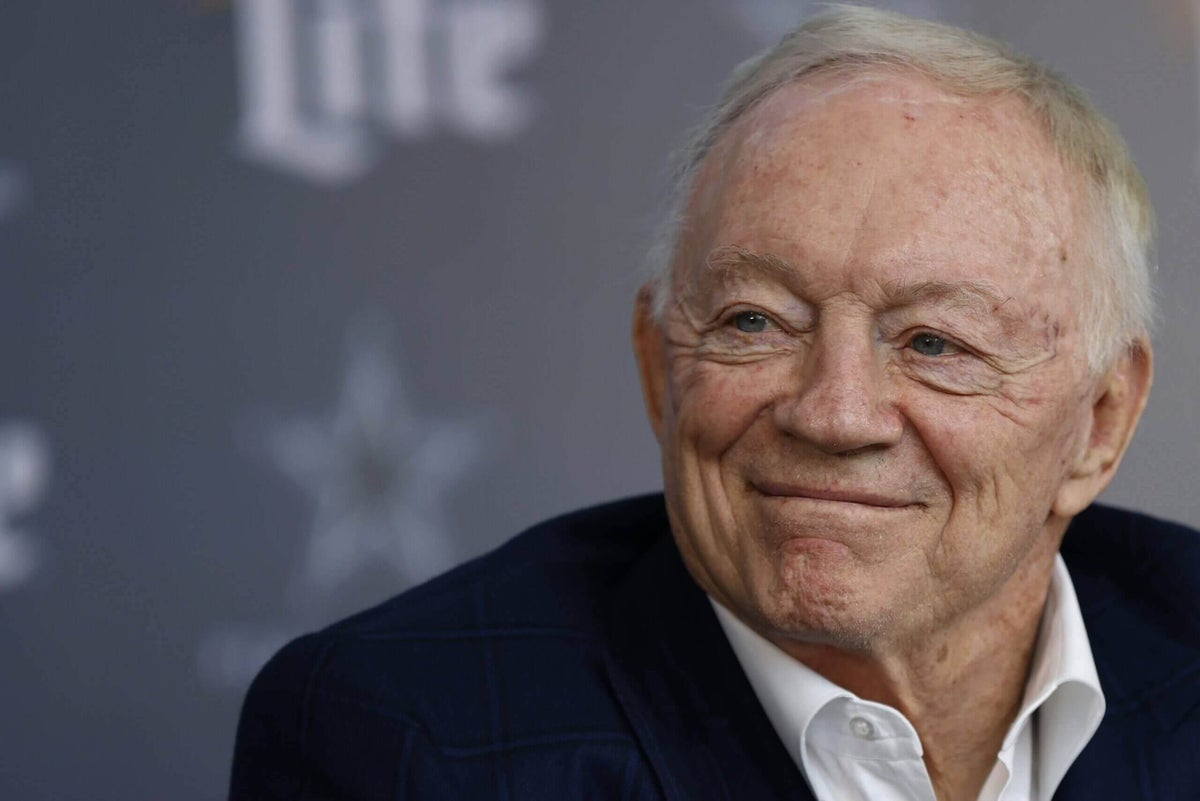The Athletic has live coverage of the 2025 NFL Preseason.
As the archetype of the tough-guy football coach, Bill Parcells was never a fan of owners getting involved in the X’s or the O’s. But Jerry Jones was different.
Jerry Jones was Jerry Jones.
As owner, president and general manager of the Dallas Cowboys, Jones attended every practice, watched film with Parcells almost every day and talked often with his head coach about the players they liked and the players they could live without. To the surprise of many, Parcells swore he thoroughly enjoyed the experience over the final four seasons of his Pro Football Hall of Fame career.
“It’s for a very simple reason,” Parcells told The Athletic on Thursday. “His word was good. If Jerry said he was going to do something, he always did it.”
Calvin Hill, the former star Cowboys running back and longtime Jones consultant, recalls brutal negotiating sessions with team executive Tex Schramm back in the day that left young players steaming, talks that made Jones’ current standoff with Micah Parsons a lovefest in comparison.
“I’ve told a lot of guys who I played with in the ’70s that it’s too bad we didn’t play when Jerry was the owner,” Hill said. “Tex thought you should pay to play for the Cowboys. Jerry didn’t get to where he is today by opening doors and letting people come in and take what they want, but he’s always been fair.”
And he has always been present — so, so present — a break from Cowboys tradition. Tom Landry’s players rarely saw the franchise’s founder, Clint Murchison Jr., hanging around practice or anywhere else. One teammate mistook the owner for an equipment company rep at practice and asked him for a new pair of shoes.
“And Clint went into the locker room and brought out a new pair because he saw the humor in it,” Hill said.
All these years later, everyone knows that 82-year-old Jerral Wayne Jones Sr. is not the local equipment rep.
Jones is the biggest star that the biggest franchise in America’s biggest sport has ever seen. It is a staggering achievement, too, given that Jerry has put a new twist on the old Vince Lombardi line.
He has proved that winning isn’t everything … or the only thing. His Cowboys have won a grand total of five playoff games over the last 29 years, yet they dominate the national sports conversation every day of every week of every season.
Jerry Jones is the sole reason. I covered George Steinbrenner in New York, and Jones is Steinbrenner times 20. The Boss on steroids. Jones is working on 30 straight years of failing to reach the NFC Championship Game, and still, Netflix is releasing a documentary this month titled “America’s Team: The Gambler and His Cowboys.”
My popcorn is already buttered. It’s about Jerry Jones, after all.
He is worth $16 billion. According to Forbes, Jones is the only person on the planet who can claim ownership of a sports franchise worth at least $10 billion.
A sports franchise he bought on a handshake for $140 million.
Jones built this empire by enduring a 1-15 season in his 1989 debut, by winning three Super Bowls in his first seven years as owner, and by supplementing his three-ring dynasty with a three-ring circus that he carefully choreographed to ensure that his football team was talked about and written about to the point of sheer exhaustion.
In November 2017, right after Jones received his Hall of Fame ring in the middle of a blowout loss to the Philadelphia Eagles, he was outside the locker room telling of how a late television executive, Dan Burke, had assured him years earlier that TV and pro football were made for each other. “I could hire every producer in Hollywood and couldn’t come up with all the soap operas that happen on and off the field,” Burke told Jones. “That’s the NFL.”
The Cowboys’ owner had just suffered his worst loss at AT&T Stadium since its 2009 opening and had just come out of a verbal brawl with Roger Goodell over the six-game suspension of Ezekiel Elliott related to domestic violence allegations. But Jones still loved the drama. “It’s great to be a part of it,” he told the reporters around him. “And I’m looking forward to hopefully doing it a lot more.”
When Hill was about to take his consulting job with Jones, NBC Sports president Dick Ebersol told him there were three marketing geniuses in sports.
Phil Knight.
David Stern.
And Jerry Jones.
Jones understood the appeal of reality TV long before the Kardashians did. “This is a soap opera 365 days a year,” he says in the Netflix doc trailer. This is one son of an Arkansas grocer who should’ve won a few Daytime Emmys for Outstanding Series to compensate for the championships that stopped rolling in during the winter of 1996.
Around the same time, Jones was battling the NFL over the side deals he cut with Nike and Pepsi; the league had contracts with Reebok and Coca-Cola. Jones announced the Nike contract with a press release headlined, “Cowboys’ Owner Bucks NFL Again.” The league sued him for $350 million, and Jones countersued for $750 million.
Guess who won that staredown?
The old guard never cared for the way Jones conducted his business. New York Giants owner Wellington Mara compared his peer to a relay-team runner who refuses to hand off the baton. San Francisco 49ers president Carmen Policy said Jones was “out of control.”
It only seemed that way, really, as Jones drove a content machine that was more dominant off the field than the New England Patriots of Bill Belichick and Tom Brady were on it. The Patriots’ owner, Robert Kraft, has made 10 trips to the Super Bowl (winning six times) since Jones last reached the big game, and yet Kraft hasn’t joined Jones in Canton, Ohio.
That’s the power of being Jerry.
The shadow commissioner imposed his will in the TV rights deals space. He built himself a colossal mothership of a stadium. He helped return the NFL to Los Angeles and helped put the league in Las Vegas.

Jerry Jones loves a microphone, and the microphone loves Jones. (Brandon Sloter / Icon Sportswire via Getty Images)
Jones gets what he wants, when he wants it, pretty much all the time. Except when it comes to Lombardi trophies. And the lack of those over the last three decades has inspired critics (including yours truly) to argue that Jones cares more about branding than he does about winning.
“It’s not true,” said Hill, who recalled how upset Jones was when the Cowboys lost to the Atlanta Falcons in a 2000 American Bowl preseason game in Japan. “I can tell those people who think he just wants to make money that he is super competitive and wants to win as much as any owner in the NFL. It hurts Jerry when he doesn’t win.”
He compensates by winning in other arenas, though he has made his share of mistakes over the years, including some major ones. Jones is a flawed human being, and those flaws are often exposed in the contract battles he has fought with star players from Emmitt Smith to Parsons, including the disrespect shown to the pass rusher’s agent. I’ve been a frequent critic of Jerry’s over time, and his firing of one of my childhood idols, coach Landry, probably added a little zip to those fastballs.
But I’ve been worn down by the man’s staying power. Jones is much more than a modern-day P.T. Barnum. The Jerry juggernaut is hard to deny, even if the Cowboys are predicted to come up short this year yet again.
Unsolicited, Parcells and Hill offered Thursday that Jones has done many good deeds for coworkers in need without seeking any publicity for them. And that’s a great thing.
But in the end, nobody in sports has ever mastered and monetized the art of publicity-seeking quite like Jones. He has lived a huge American life, and it’s only going to get bigger, whether his 2025 Cowboys score a bunch of touchdowns or not.
Jerry Jones is approaching his 37th NFL season. That’s enough reason to get your popcorn ready.
(Top photo: Ron Jenkins / Getty Images)

